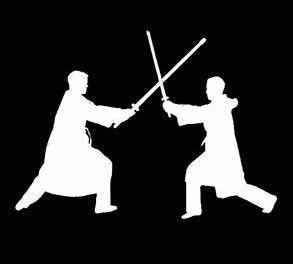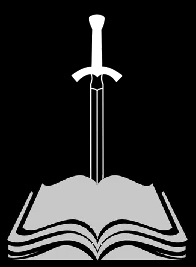Extension of You
By Anthony Casperson
7-23-22
A rank of new recruits move their swords in unison. Or a pair of inexperienced soldiers spar while the rest of their fellow watch. But there’s another person—a leader, mentor, or veteran—moving around them. This person calls out the lesson.
“The sword is an extension of your arm.”
Other words come along with these. Usually, about the connection of warrior and weapon. Or the responsibility of the soldier while wielding it. There’s a value in that unity between flesh and steel.
We’ve witnessed a scene like this so often in various stories that it’s almost become cliché. Some of you might’ve seen the title of this blog and known right where I was going for the illustration. Especially if you’ve been following along with the blog series we’re going through currently.
Reaching the second half of Ephesians 6:17, we come to the part of our spiritual warfare’s armor where we see the sword of the Spirit. Paul explains in the verse that this sword is the word of God.
But if we were to be in the midst of a lesson for neophyte soldiers, what would we hear from the combat trainer? What should the connection between the follower of Jesus and the word of God look like? And what are the responsibilities of the one wielding it?
When it comes to the sword of the Spirit being an extension of us, we need to start by pointing out what “the word of God” actually refers to. While most would rightly speak to the idea of learning/understanding the bible, we often forget why these words are important.
They’re not just some statement of history. And they’re certainly not man-made creations to control the masses. These are how God reveals the kind of Creator that he is. And the actions or ways of life that are best for his creation. Whether it’s through example—both positive and negative—or direct command, these are words directly from God to us for our benefit and good so that we can delight in him and the person he made us to be.
In 2 Peter 1:19-21, the Apostle reminds us that the prophetic word (which refers to the entirety of the bible, not just things about the future) is like a lamp shining in the darkness of this world. We turn our attention to the light until this age of sinful night turns to the bright day of Jesus’ return.
And the reason we cling to the word is because none of it came about as a single human being’s interpretation of the world as they try to explain whatever it was they wanted to believe was true. No, it came about as the human authors allowed the Spirit to extend through them in order to write the things God wanted us to know about him and his purpose for us.
This is why the word of God is called the sword of the Spirit. The connection between Spirit and flesh has been present since its forging.
Therefore, because these words, commands, and teachings are directly from God, we can rejoice in them. Whether they speak of things that make us feel good, or if they remind us of our need of God’s strength to live up to them.
If you wanted to see this rejoicing in the word of God, Psalm 119 would be a good place to start. This longest psalm lays out the author’s joyous connection to the laws of God from A to Z. (Or Aleph to Taw, but I don’t expect you to know the Hebrew alphabet.)
Looking just to the eight verses dedicated to a single letter of the alphabet, we can get the idea of the whole. We’ll look at verses 41-48. Here, we see the psalmist call for God’s unending love and salvation so that he could have an answer for when his enemies fling doubts. And these answers come because he clings tightly to the truth of God’s word.
The psalmist desires that the word of truth never be removed from his lips because his hope is in God’s rules. He clings to the commands of God—our Creator’s definition of life—even when the problems of this life sweep the psalmist’s feet out from under him.
He wants for the word of God to be his constant companion. When the psalmist goes about his daily life. Or when he speaks to others, especially if it’s as a defense before a nation’s leaders. And even more so, when he comes before God in worship.
This poetic spiritual warrior lives and dies by his sword. And so should we who join in this spiritual warfare.
Now, it’s all well and good for us to understand the union of spirit and flesh, but how are we expected to use it? What are our responsibilities while we bear this sword? And maybe, more specifically, against who/what do we wield it?
This is where we have to point back to the first blog in the series. Our spiritual battle isn’t against flesh and blood, but against the wickedness of the age. Against the deceit of Satan in this world. We use the word of God, not to tear down our fellow image-bearers of God. But rather, we wield this weapon to speak truth into the lies that teach us lessons that go against God’s definition of life for his creation.
Though there’s technically a chapter break imposed onto Peter’s words in his second letter, the very next verses after the ones we previously discussed lead us to 2 Peter 2:1-3, where the Apostle shows us the flip side to the prophetic word of God that came through the Spirit. Namely, the destructive heresies of the false prophets.
Words and ideas that did come about by the selfish dogmatism of those who wanted things their own way. Teaching that denies not only the power of the word of God, but even denies the Creator of it all. These false teachers not only bring destruction upon themselves, but also those whom they teach to fall in line with their ungodly sensualities.
We wield the sword of the Spirit to protect our fellow image-bearers from deceptive destruction, not to destroy the people ourselves. The word preserves humanity. It is only meant to cut away at the falsehood of sin.
This sword is an extension of our life with God. Let us cling to it like our life depends on it—because it does. And let’s use it responsibly by never wielding it to tear down an individual, even if we need to perform the delicate surgery of separating the person from the lie.
The sword of the Spirit is a tool of protection and life. Not destruction.




